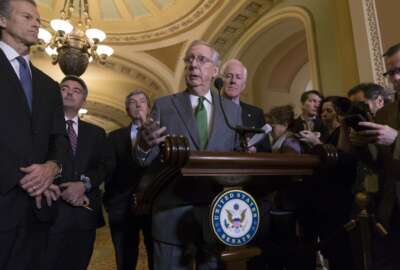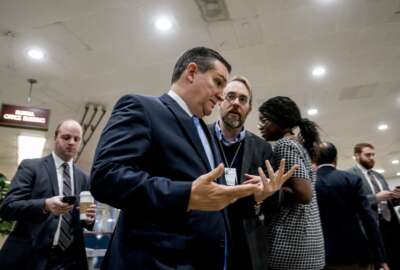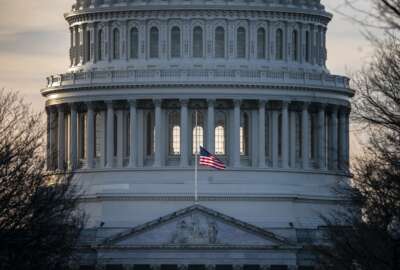
Feds say morale would take biggest hit from partial shutdown
A survey of Federal News Network readers found 51 percent of respondents say their and their co-workers’ feelings about their job and their agency would get...
As Congress and the White House seesaw about whether the government will be partially shutdown on Saturday at midnight, federal employees believe the biggest impact of a lapse in funding across seven appropriations bills will be on employee morale.
An online survey of Federal News Network readers found 51 percent of the 194 respondents say their feelings and those of their co-workers about their job and their agency would get worse.
“It is ridiculous that we are constantly being put in this position each year. The people on the Hill need to get it right, and stop playing games with our lives. It would be a totally different story if their paychecks were on the line,” wrote one respondent.
Another said, “I sometimes question why I continue to work for the federal government when I could make 40 percent more given my Ph.D. and my experience!”
Overall, respondents were mixed on whether the government would actually have a lapse in funding under those seven appropriations bills.
Forty-four percent of the respondents said they thought a shutdown was likely to happen, while 30 percent said they thought Congress and the White House would work out a continuing resolution (CR).
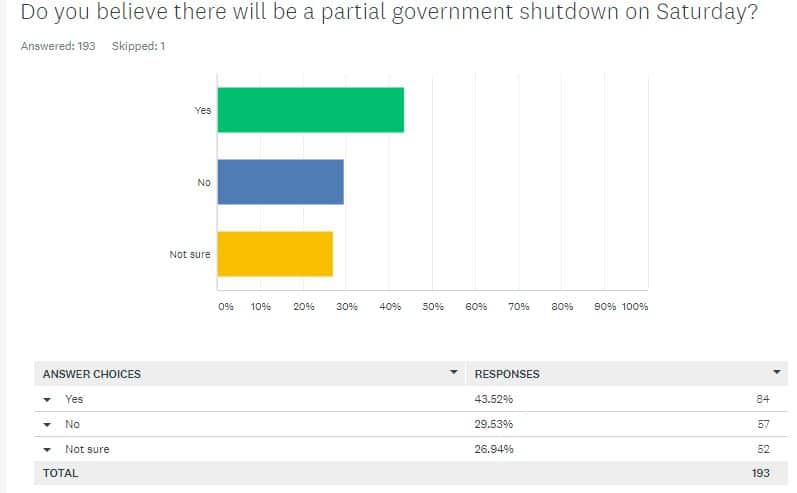
One long-time federal employee said, “Been through decades of the same situation, and it works out in the end.”
Another was not so positive. “With the new Congress being instituted on Jan. 3, there is too much instability to gain complete agreement on funding.”
And yet another said the partial shutdown would be among the longer ones agencies have seen in the last 10 years. “And most likely will extend into the Christmas holiday since Congress starts [their] break. There is not opportunity for them to return to discussion on Monday (Christmas Eve) and [they don’t] return from break on Jan. 3.”
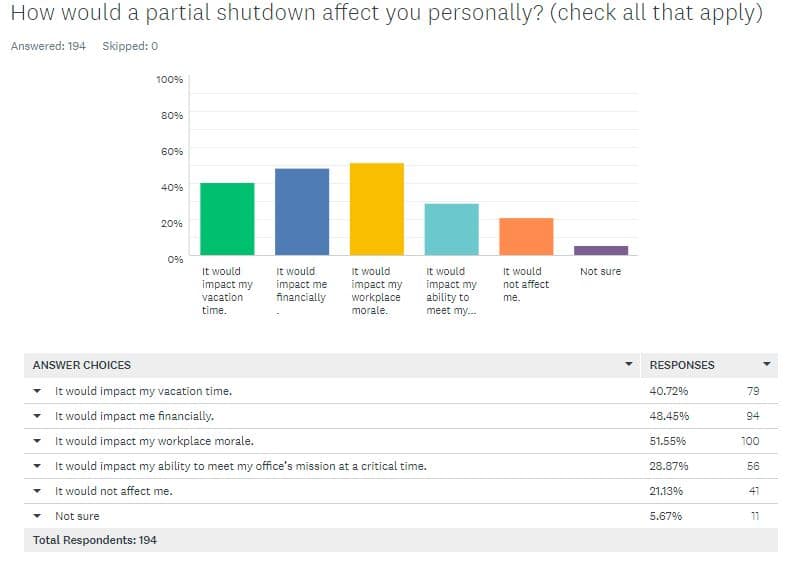
Respondents were split over how long the shutdown would last as well.
Twenty-five percent of respondents said it would last more than a week, while 22 percent said it would last one to three days. At the same time, 12 percent of the respondents said the partial shutdown would last for more than two weeks, while 17 percent said the length of the appropriations lapse would be between four and seven days.
Beyond the hit on morale, respondents said a partial shutdown would impact vacation time and programs at a critical time.
“My NTEU chapter already e-mailed us advising members to begin making necessary preparations. Since we’re IRS contact representatives, we are well and truly screwed getting ready for the new filing season,” wrote one employee.
Another employee said their co-workers have a more cynical view of the entire effort.
“A lot of people in my office are looking forward to it,” said another respondent.
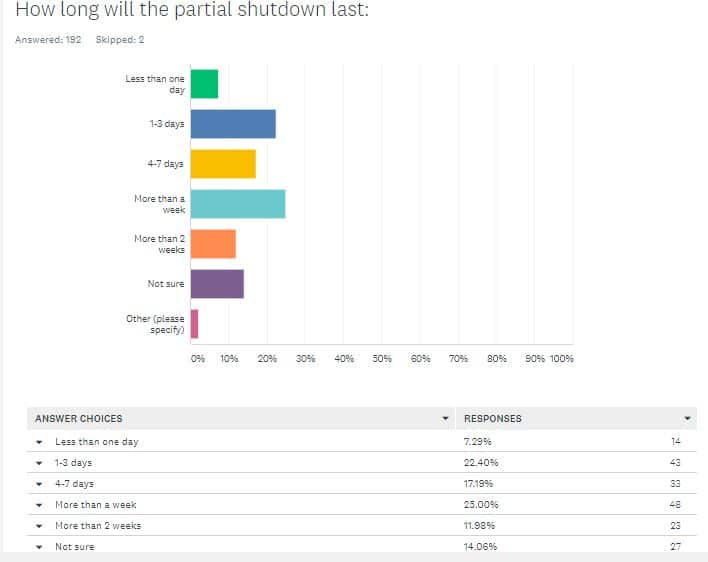
Overall, federal employees are less pessimistic about a partial shutdown then they were in January. The sample size is much smaller compared to our January shutdown survey. Respondents 11 months ago seemed to be tired of the “sky is falling” approach to government funding yet 70 percent still said a shutdown would occur at that time.
And back in December 2017, federal employees told Federal News Network they were more confident that a shutdown wouldn’t occur with more than 60 percent of 572 respondents saying they were optimistic.
Copyright © 2025 Federal News Network. All rights reserved. This website is not intended for users located within the European Economic Area.
Jason Miller is executive editor of Federal News Network and directs news coverage on the people, policy and programs of the federal government.
Follow @jmillerWFED
Related Stories

Shutdown uncertainty may leave biggest impact on federal employees’ holiday vacation plans
